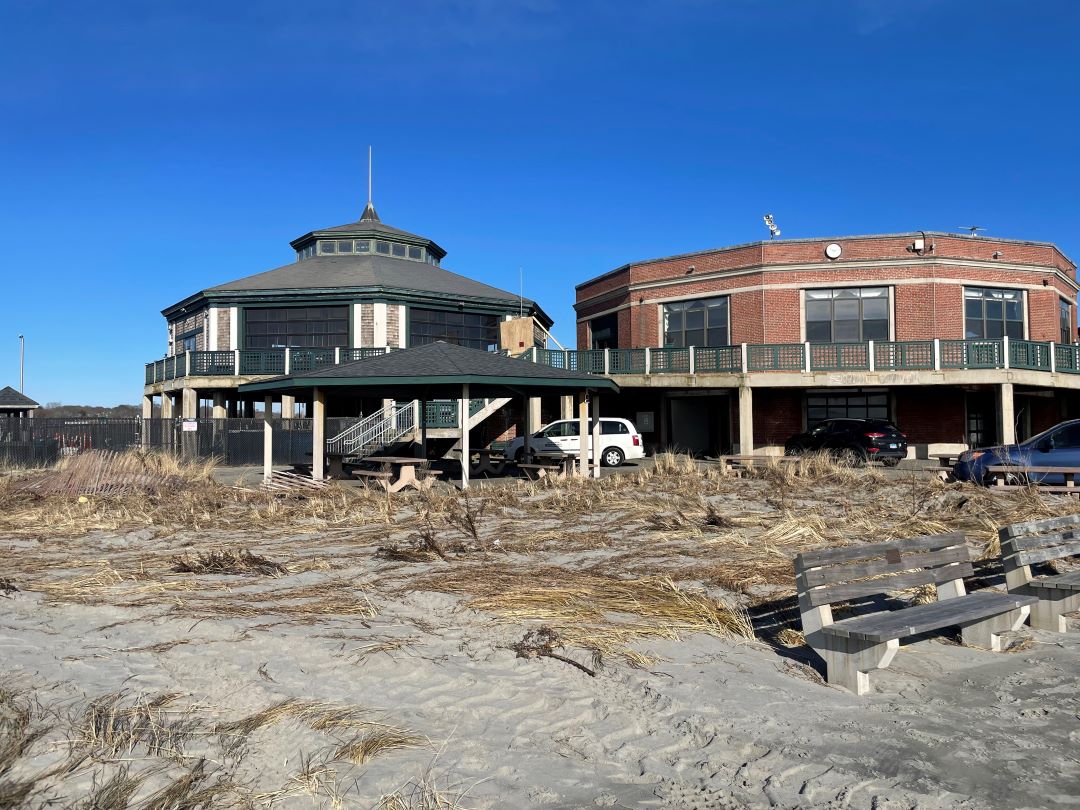Climate Board Calls for Aggressive Action to Mitigate Impacts
July 8, 2019
PROVIDENCE — As prospects dimmed for legislative action on climate change, Janet Coit, chairwoman of the Executive Climate Change Coordinating Council, reminded the committee of agency heads at a late-June meeting that several initiatives will be needed for the state to realize its climate-adaptation and emission-reduction goals.
Coit said she reaffirmed this conclusion after she, Gov. Gina Raimondo, and Office of Energy Resources (OER) director Carol Grant met with MIT professor John Sterman. Sterman, known for his modeling of climate emissions, presented Rhode Island emission projections based on various policy initiatives.
“It demonstrates very clearly, very quickly that if we are going to meet the levels that we committed to in the Paris Agreement then we are going to have to do a whole lot of things at once,” said Coit, who is the director of the Rhode Island Department of Environmental Management (DEM).
Energy efficiency and decarbonization must “go forward aggressively in all sectors if we’re going to prevent catastrophic climate impacts,” she said.
As an example, Coit noted Rhode Island’s commitment to the U.S. Climate Alliance, a 25-state network of governors committed to meeting the emission-reduction goals set by the Paris Agreement. The alliance, Coit said, will rely on litigation and other methods “to counter-effect some of the ways that we are backsliding at a national level.”
One of the results of the alliance, Coit noted, was the $650,000 Rhode Island received for an urban tree-planting program. The privately funded grant will support new tree growth across the state to improve air quality, sequester carbon, and reduce stormwater runoff.
At look at some of the other issues discussed at the June 24 meeting of the Executive Climate Change Coordinating Council (EC4):
Carbon-fee study: A request for proposal is expected to be announced July 8 for a study of a state carbon-pricing program. Up to $250,000 was made available for the analysis through settlement money the state attorney general received through the Volkswagen emissions scandal.
Storm preparedness: A survey conducted by the Division of Statewide Planning and consultant RPS Group found that 40 percent of small business don’t reopen after major disasters. At-risk businesses in coastal communities reported that most are generally aware of the threats from major storms and believe they could handle a temporary shutdown.
Ocean State communities with businesses most at risk from moderate or severe flooding are Barrington, Warren, Providence, and Block Island.
EC4 advisory board: Several new members were appointed by the Senate to the EC4’s Science & Technical Advisory Board (STAB), the nine-member committee that advises the EC4 on climate change. The new members are: Arthur Spivack, oceanographer at the University of Rhode Island Graduate School of Oceanography; Nicholas Ucci, Office of Energy Resources; Lilly Picchione, Rhode Island Public Trust Authority; Tracey Dalton, URI department of marine affairs; and Michael Baer, state Commission on the Deaf and Hard of Hearing. Henry Walker, of the Environmental Protection Agency, and Brown University professor Timmons Roberts were reappointed.
Roberts will be leading an assessment of the state’s greenhouse-gas inventory at the EC4’s next meeting, scheduled for Sept. 12.
Shuttle update: The Little Roady semi-autonomous shuttle service is doing well, according to Julia Gold of the Rhode Island Department of Transportation. In less than six weeks of operation, the fleet of electric vans has made 5,000 rides, with occupants moving between the downtown train station and Olneyville Square.
Renewable energy: At the end of the year’s first quarter, Rhode Island had 371 megawatts of renewable-energy capacity. That number is expected to increase to at least 770 megawatts, once the second-quarter amount is tallied.
Although the Revolution Wind offshore project won’t be operational until at least 2023, the state Public Utilities Commission approved the purchase of 400 megawatts from the 50-turbine project in late May, adding to the power output to the governor’s goal of 1,000 megawatts of renewable projects underway by 2020. The OER expects to reach 800 megawatts by the end of this year.
Streams: The Department of Transportation (DOT) presented its Road-Stream Crossing Assessment Manual, which evaluates flood readiness and habitat connection for 4,000 stream crossings in Rhode Island. The manual was prompted by the failure of many stream crossings during the 2010 flood and to evaluate their soundness to withstand a projected 70 percent jump in heavy precipitation events in the Northeast and increased flooding from sea-level rise and storm surges. The manual ranks crossing that are candidates for replacement or removal.
The assessment doesn’t mandate any rules or regulations for developers, something Massachusetts does for its stream crossings.
DOT is scheduled to host two workshops on its stream-crossing manual, along with a pilot study of the Woonasquatucket River watershed, July 18 and 23 at DEM, 235 Promenade St., Room 300, from 10 a.m.-noon.



